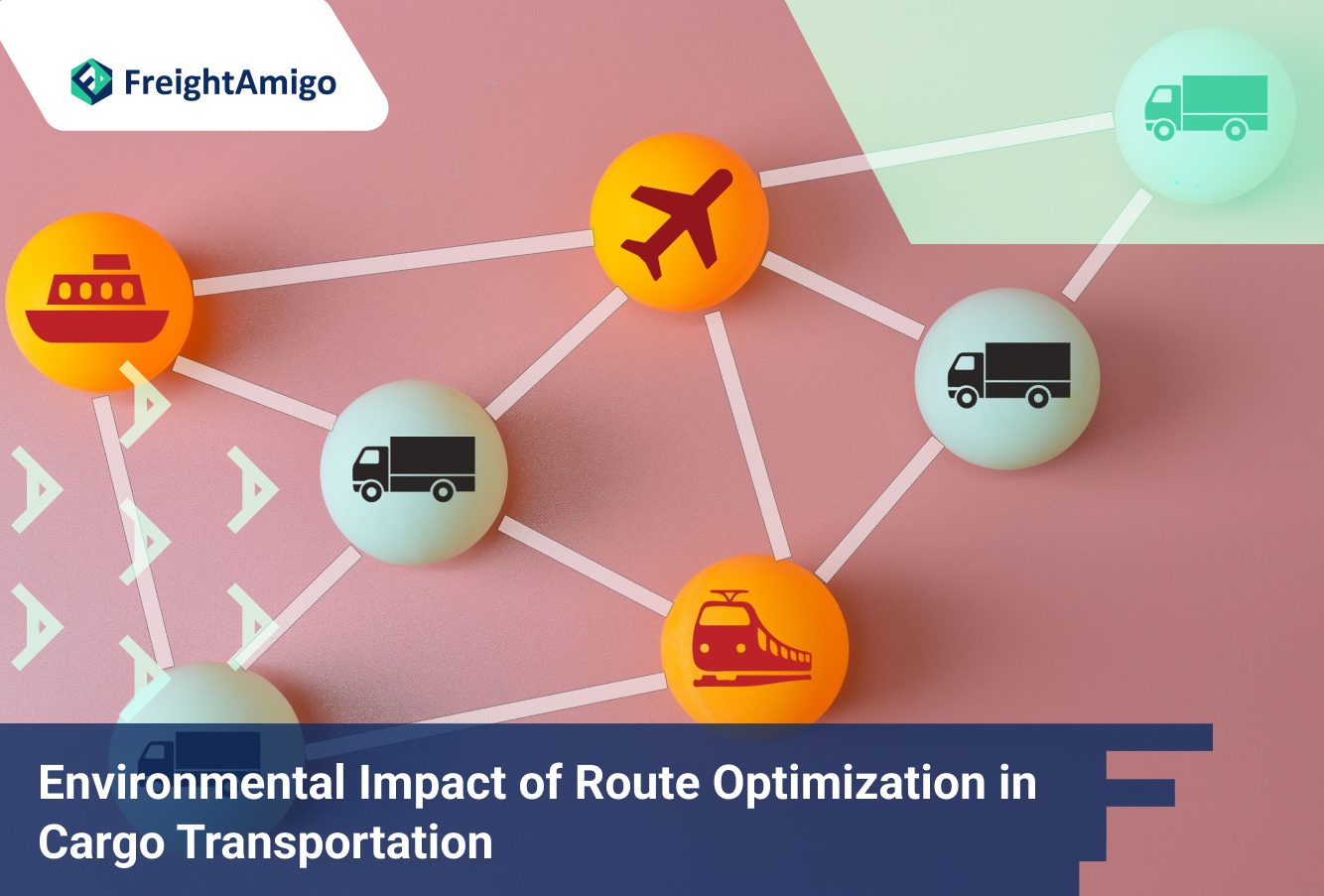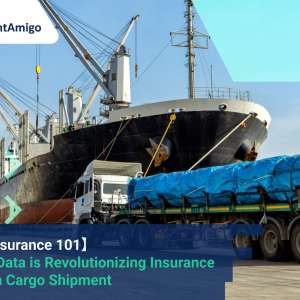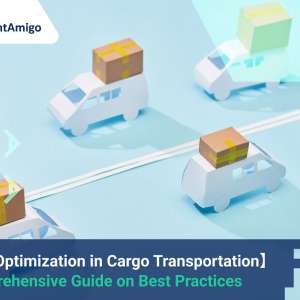By leveraging technology and data analytics, efficient route planning is revolutionizing the freight transportation industry. It helps companies achieve significant cost savings, improve customer satisfaction, and reduce carbon emissions. This article explores how route optimization in freight transportation can help reduce carbon footprints and promote sustainability.
Latest update on 28 February, 2024 by Aurora Park – Marketing Analyst at FreightAmigo
Want to compare the best Express, Air Freight, Sea Freight, Rail Freight & Trucking rates so as to have better control on cost?
Understanding Route Planning in Cargo Transportation
Route planning is a strategic process that determines the most efficient and effective routes for moving freight. It uses various factors such as traffic congestion, road conditions, delivery schedules, and vehicle capacity to create the shortest and most fuel-efficient routes. This process is dynamic and constantly adapts to real-time information such as weather conditions, road closures, and construction.
The Evolution of Route Planning
Traditionally, route planning has been a manual and time-consuming process using maps and simple GPS devices. However, with the advent of advanced technology and the widespread use of data analytics, it has evolved into a more sophisticated and complex practice. Modern route optimization software and GPS devices take into account a variety of variables, including distance, traffic patterns, and road conditions, to generate efficient routes for freight vehicles.
The Significance of Route Planning
Effective route planning has many benefits for businesses. Not only does it save time and money, it also improves customer satisfaction and driver efficiency. It also plays a vital role in protecting the environment by reducing carbon emissions. Efficient route planning thus creates immense value for companies and contributes significantly to reducing their carbon footprint.
Route Optimization and Carbon Emissions
The transportation sector is a significant contributor to global carbon emissions, with fossil fuel vehicles being the primary culprit. Factors such as vehicle type, age, and condition, as well as traffic congestion, have a significant impact on emissions. Poor route planning can exacerbate the situation by causing unnecessary detours or traffic delays, resulting in excessive fuel consumption and emissions.
Optimizing Routes for Fuel Efficiency
One of the most important ways route planning can reduce carbon emissions is by optimizing routes for fuel efficiency. Route optimization software can design the most efficient routes for vehicles by considering parameters such as distance, traffic patterns, and road conditions. By minimizing unnecessary detours, avoiding congested areas, and reducing idle time, companies can save on fuel costs and reduce emissions.
Considering Environmental Factors
Advanced route optimization software can also take environmental considerations into account when planning routes. For example, it can avoid routes that pass through heavily industrialized areas or areas with poor air quality to minimize the impact of emissions. It can also avoid routes that pass through sensitive environmental areas, such as nature reserves or designated wildlife habitats, to reduce environmental impact.
Promoting Eco-Friendly Transportation Alternatives
Route planning can also encourage the use of environmentally friendly transportation alternatives. For example, it can recommend routes that minimize the use of individual vehicles and encourage the use of public transit or shared mobility services. This not only reduces carbon emissions, but also reduces the number of vehicles on the road, thereby reducing traffic congestion.
The Role of Technology in Route Optimization
Technology plays a critical role in facilitating efficient route planning. Modern route optimization software uses data analysis and real-time information to make informed decisions about routes. These technological advances not only simplify route planning, but also make it more efficient and effective, helping to reduce carbon emissions.
Harnessing Technology for Optimization
Many cargo companies are using technology to optimize their routes. By integrating route planning systems into their operations, they can minimize empty miles and improve both fuel efficiency and emissions reduction. This technology-centric solution not only improves business efficiency, but also contributes to sustainability.
The Power of Data Analytics
Data analytics is another powerful tool for route optimization. It enables companies to analyze large amounts of data and derive insights that can help them make informed decisions about their routes. By analyzing data on traffic patterns, weather conditions, and vehicle performance, companies can optimize their routes to reduce fuel consumption and emissions.
The Role of Training and Education
While technology provides the tools for efficient route planning, it is the people who put those tools into practice. Comprehensive training programs ensure that all team members understand their role in achieving efficiency and sustainability. By fostering a culture of education and awareness, companies can create advocates for efficient route planning who understand the importance of reducing carbon emissions.
The Intersection of Efficiency and Environmental Responsibility
Efficient route planning transcends the realm of logistics and enters the realm of strategic sustainability. By orchestrating the most efficient routes for transportation, companies can achieve two fundamental triumphs: significant cost savings and a reduction in carbon emissions. This marriage of economic efficiency and environmental stewardship defines a new dimension of responsible business.
Conclusion
Optimizing freight transportation routes is critical for companies looking to reduce their carbon footprint and promote sustainability. By adopting green logistics practices and leveraging cutting-edge technologies, companies can make significant strides toward creating a more sustainable transportation system. As the world grapples with the challenges of climate change, companies must prioritize reducing their carbon footprint through smart route planning strategies. In doing so, they can contribute to the global effort to build a more sustainable and environmentally friendly future.
For efficient cargo transportation, consult logistics experts like FreightAmigo. Visit the FreightAmigo website to explore our expertise in route optimization, ensuring timely and cost-effective delivery of your goods.
Read More:
Route Optimization | Enhancing Efficiency & Cost Savings | FreightAmigo
Warehouse Optimization | Streamlining Operations | FreightAmigo
The Revolutionizing Role of Technology in Car Logistics | FreightAmigo
Route Optimization in Cargo Transportation: A Comprehensive Guide on Best Practices
If you have any inquiries on logistics/supply chain, feel free to contact FreightAmigo now:
Chat with us online | Hotline: +852 28121686 | WhatsApp: +852 27467829









































